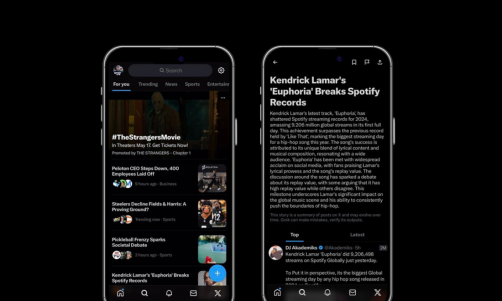Amazon reported a 7% rise in second-quarter net revenue on Thursday and expects its Prime Day exhibit to boost third-quarter revenues.
Amazon Reported a Year-Over-Year Growth in Net Sales of 7%
After seeing rapid growth during the pandemic, Amazon's growth has slowed in recent quarters, but the business anticipates that things will soon resume. In its presentation of second-quarter results on Thursday (July 27), Amazon noted that its net sales increased merely 7% year over year.
Nevertheless, the third quarter would see net sales increase by an expected 13 to 17% due to the company's enormous Prime Day shopping display.
In the second quarter, net sales climbed by 7% to $121.2 billion from the second quarter of 2021's $113.1 billion. Net sales rose 10% compared to the second quarter of 2021, excluding the $3.6 billion adverse effect from year-over-year fluctuations in foreign exchange rates.
Prime subscribers saved $1.7 billion globally on this Prime Day compared to prior Prime Days. Amazon devices, consumer electronics, and homes were top-selling categories on July 12 and 13., where amazon devices sold more on Prime Day than before.
Growth has slowed, but not as much as expected, and after-hours trade has increased. Amazon's second-quarter sales were $121.2 billion. However, these sales weren't enough to offset a $2 billion net loss, primarily due to a $3.9 billion loss from its investment in Rivian electric cars.
However, Andy Jassy, who succeeded Jeff Bezos as CEO a year ago, maybe turning things around. Jassy faced modest growth, unionization initiatives at Amazon warehouses (including the first successful vote), and replacing Dave Clark, the 23-year Amazon veteran who departed in June. Jassy spent his first year getting control of the company's retail and logistics sector.
Read Also: Nearly 100 Locations in Google Maps will Get 'Photorealistic Aerial Images'
Exec Claimed that Amazon had Not Seen Inflation Like Others
Walmart and Best Buy cut their second-quarter and full-year profit outlooks this week, signaling that increasing inflation was affecting consumer spending. Other retailers, including Amazon, Target, and Macy's, saw their shares fall after Walmart's statement.
However, Amazon executives said Thursday the e-commerce giant hadn't faced inflationary repercussions like other merchants. CFO Brian Olsavsky was asked about inflation on Amazon's second-quarter earnings call.
Olsavsky remarked, "We haven't seen anything yet. We saw a very robust June and noticed an increase in demand over the quarter.
Following a time in which a pandemic-driven frenzy of online purchases taxed its fulfillment and logistics capabilities, Olsavsky said that Amazon made headway in replenishing its product inventory and that delivery speeds are now mostly back to normal. He proposed that customers were aware of the improvement and thus made more purchases throughout the quarter.
Compared to Walmart, Amazon has a distinct edge. The big-box retailer said shoppers tightened their belts due to increased grocery and petrol prices, spending more on basics like food and less on gadgets and clothes. Higher-priced things began piling up, and as a result, Walmart drastically lowered unsold products, hurting profits.
On the other hand, Amazon is buoyed by a combination of moderate and higher-income customers, while Walmart is "heavily pushed" by lower-income consumers, who are more susceptible to inflation.
Related Article: Amazon Inc. Announces Plan to Buy One Medical for $18 Per Share










